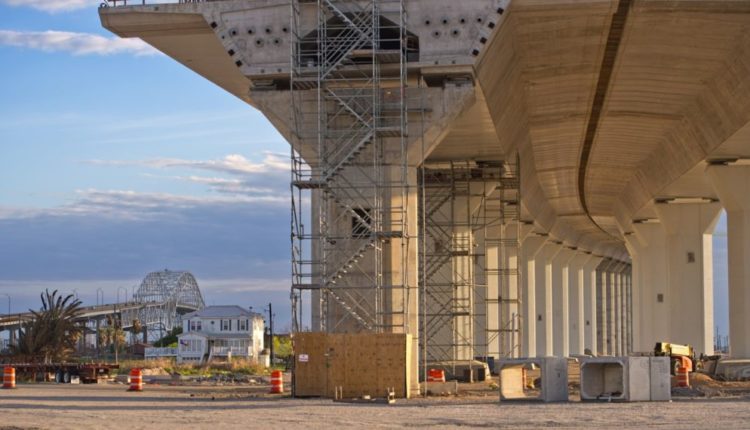Ghana loses US$25 million to uncompleted projects yearly

Ghana continues to lose millions of dollars due to the inability to complete projects that it started every year, that’s according to the first Deputy Governor of the Bank of Ghana, Dr. Maxwell Opoku-Afari.
According to him, the lack of proper monitoring is one of the major reasons for the non-completion of a number of infrastructure projects in the country – other reasons he also cited is the inability to complete the projects are political and poor planning.
“It is also important that we effectively monitor infrastructure projects to completion. It is estimated that the country loses as much as US$25 million a year to uncompleted projects” he said.
Dr. Opoku-Afari also said the risk profile of infrastructure investment projects in the country is very high. As such, he urged the government to consider providing seed funds to help reduce such risks.
One of the components of the infrastructure cost that government can absorb is the project preparation costs. This, the first Deputy Governor said, usually ranges between 5-10 percent of the total project costs.
Unfinished infrastructure projects
Meanwhile, the International Growth Centre (IGC) found that 1/3 of infrastructure projects in Ghana remains uncompleted. This is primarily a result of poor financial planning.
Still speaking on closing the infrastructure gap, Dr. Opoku-Afari opined that the private sector has a significant role to play. This is where he believes, Public-Private Partnership (PPP) are paramount.
He noted that the role of private investment and PPPs is indispensable “if Ghana intends to close the huge infrastructure gap”.
Moreover, he indicated that PPPs will also help improve the quality of infrastructure in the country adding that, New Development Finance is needed to focus on creating capacity for private sector to thrive.
However, he stated that to attract the private investors also means ensuring stability in the Infrastructure Investment Climate.
Dr. Opoku-Afari explained that the long-term nature of infrastructure projects requires a stable investment climate.
Consequently, he emphasized that stability in the Infrastructure Investment Climate is key, “if we want to attract the private sector”.
Furthermore, he cited a number of factors that are likely to undermine investor confidence. They include: Changes in policies, renegotiation and sometimes cancellation of infrastructure investment agreements.
As a result, he called for requisite expertise and effective coordination among stakeholders to ensure certainty and constancy in such long-term agreements. This, he said, will help enhance investor confidence.
Need to attract more FDI
Also, another area of interest in re-thinking development financing is the attraction of Foreign Direct Investments (FDIs).
Dr. Opoku-Afari averred that this will also play a major role in supporting infrastructure development.
According to him, Net FDI inflows into Ghana shot up from US$165.9 million in 2000 to US$3.9 billion in 2019. It however, reduced to US$1.9 billion in 2020 due to COVID-19 effects, he said.
He indicated that FDI’s share of GDP climbed up from an average of 0.2 percent during the 1980s to 2.0 percent in the 1990s. It then rose to 4.2 percent in 2000s, and to 6.5 percent during the past decade (2010-2019).
“Ghana’s average share during the past decade is higher than the SSA average of 2.3 percent of GDP. The steady increase in Ghana reflects reforms aimed at improving the enabling environment to attract such foreign investments”.
New financing options
In a nutshell, the first Deputy Governor called for a paradigm shift in infrastructure financing in the country. He argued that, the country requires alternative sources of financing to close the gap.
“The most sustainable and non-debt creating way to finance development is by enhancing domestic revenue mobilization and attracting foreign direct investments (FDIs). No one will do it for us; we have to do it ourselves”.

Comments are closed.